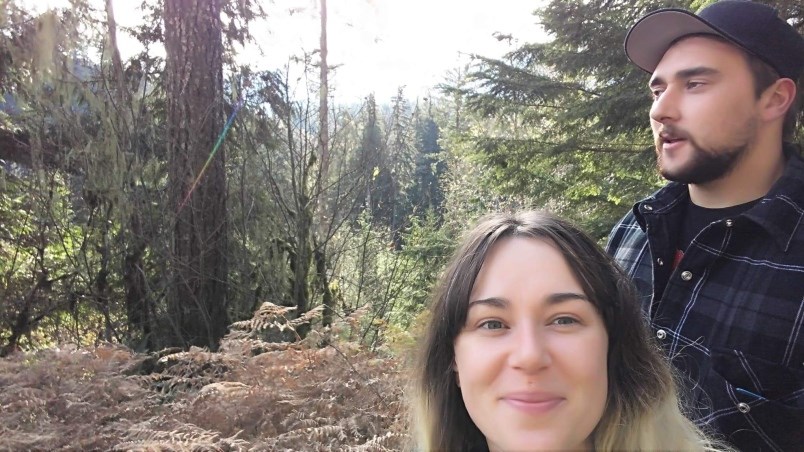What Siân MacLeod misses most about her partner, Graham Green, is having him around to talk to — about anything.
"He's my favourite person to be around or talk to — extremely generous and loving, full of curiosity and enthusiasm for life and all its facets," she told The Chief. "Seriously killer musician but the best taste in everything from films to books to comedy."
Green, who played with the band Shooting Spree, died of fentanyl overdose Monday, Aug. 24.
He had just turned 29 years old on Aug. 6 and in May had celebrated two years without using any illicit substances.
Of course, sadly, Green is not alone in how he died.
In July in B.C. there were 175 suspected illicit drug toxicity deaths, marking a 136% increase over the number of deaths seen in July 2019, which saw 74, according to the BC Coroners Service.
To put it another way, there were about 5.6 deaths per day in July 2020.
Fentanyl was detected in approximately 78% of illicit drug toxicity deaths so far in B.C. in 2020.
MacLeod met Green through music around 10 years ago.

"Friends hosted a well known outdoor event called Fastcore Fest. I would go watch their bands play and always noticed Graham's exceptional skill drumming," she recalled. "We became roommates in the city six years ago and fell quickly into a relationship we managed to keep going until now. Despite many breaks, for health recovery time, we kept coming back to each other — finally finding a place together again in Squamish this past year."
MacLeod has launched an online GoFundMe campaign — — to raise money for expenses related to his death.
"Overdose puts stigma on folks that isn't deserved," MacLeod said. "He had two years clear of all substances and had reached personal goals neither of us knew were possible in recent times. One bad mental health week shouldn't overshadow a great life. His talent, musical and work achievements, and the support and love he gave his friends and family were massive compared to the struggles in the background."
MacLeod said that often when overdose is discussed, people say using drugs "was their choice," which isn't quite accurate in the context of mental illness and other types of health circumstances, she said.
"Drug use stigma often obscures that it's a mental and physical health crisis we're looking at — a mental health episode or bad pain day shouldn't be considered anyone's choice. On a healthy day, that sufferer would tell you a bad day is their worst nightmare, not a desired outcome."

Graham Green playing with Shooting Spree by the Squamish River. Courtesy Siân MacLeod
MacLeod notes that the deaths from overdose are much higher than those who have died from COVID-19.
To date, there has been a total of 219 deaths related to the pandemic in B.C.
"This has been a crisis with fentanyl alone for over 10 years," MacLeod said.
In April 2016, then provincial health officer Dr. Perry Kendall declared the opioid crisis a public health emergency.
"At this point, it's blatant negligence, often formed from stigma," MacLeod said.
"Public education towards the issue and much, much stronger funding need to come a long way before it will appear our provincial or federal government, or even our hospitals are doing anything appropriate at all."
MacLeod asks that people don't use alone.
"Support systems save lives — had our network around Graham been operating at 100% it could have been much easier to help him navigate a potential relapse," she said. "Normalize being there to help. Recovery and sobriety aren't taboo or scary in comparison to how scary coping with addiction alone is... Please reach out to your loved ones on a bad day and work slowly on those baby steps." According to MacLeod, Graham's last note to himself read "Don't trip on outcomes; problem solve the present.'"
Squamish Helping Hands is a distributor of harm reduction supplies, drug testing kits and naloxone kits.
Theis also available and allows drug users to alert medical professionals to a possible overdose.

Read more from




